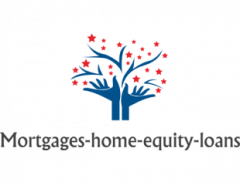Navigating the Mortgage Landscape for House Flips
Introduction: Deciphering the Possibilities of Financing a House Flip
Investing in real estate has long been a popular avenue for accumulating wealth, with house flipping standing out as a particularly lucrative strategy. The concept of flipping involves purchasing a property with the intention of renovating and selling it for a profit within a short period. However, unlike traditional home buying, securing a mortgage for a flip comes with its own set of challenges and considerations. The question many investors ask is, “Can I get a mortgage on a flip?” This article delves into this query, providing valuable insights into the intricacies of financing a house flip and how to navigate the mortgage process successfully.
Understanding House Flipping and Mortgage Basics
Before exploring the mortgage options for house flips, it’s crucial to understand what house flipping entails and how it differs from standard real estate transactions. House flipping typically involves buying a property at a lower price, often due to needed repairs or updates, and then selling it at a higher price after renovations. The process is time-sensitive, with flippers aiming to minimize the holding period to reduce costs and maximize profits.
Mortgages, on the other hand, are designed primarily for homeowners who intend to occupy the property as their residence for an extended period. This fundamental difference is the crux of the challenge when seeking a mortgage to finance a flip.
Qualifying for a Mortgage on a Flip: What Lenders Look For
To answer the question “Can I get a mortgage on a flip?” it’s imperative to understand what lenders are looking for when considering an application for such an investment. Traditional mortgage lenders typically evaluate the borrower’s creditworthiness, income stability, and debt-to-income ratio. However, when it comes to flipping, lenders also pay close attention to the investor’s experience, the property’s potential after repairs, and the feasibility of the flipping timeline.
Lenders are primarily concerned with the risk involved in the investment. Since flips are short-term endeavors with considerable financial variability, lenders may be hesitant to provide traditional mortgages. Instead, flippers often turn to alternative financing options tailored to the nature of their business.
Alternative Financing Strategies for House Flips
Given the complexities of obtaining a traditional mortgage for a house flip, investors may consider several alternative financing options. These include hard money loans, private money lenders, home equity lines of credit (HELOCs), and bridge loans.
Hard money loans are a common choice for flippers due to their quick approval times and focus on the property’s value rather than the borrower’s credit score. Private money lenders, typically individuals or small companies, can offer more flexible terms tailored to the flip’s needs. A HELOC allows investors to borrow against the equity in their own home, while bridge loans provide short-term financing that can be ideal for flips.
Navigating the Application Process for Flipping Mortgages
If an investor decides to pursue a mortgage for a house flip, it’s critical to prepare for a rigorous application process. This means having a well-documented plan for the property, including estimated renovation costs, anticipated timeline, and expected resale value. A strong financial profile and a solid track record in flipping can also help persuade lenders to consider the application.
Many lenders specializing in real estate investment may have specific mortgage products designed for flippers. These products often come with higher interest rates and shorter terms to reflect the increased risk but can be a viable option for experienced investors with a clear exit strategy.
Mitigating Risks and Improving Mortgage Approval Odds
To improve the odds of mortgage approval for a flip and mitigate risks, investors should focus on several key areas. Building a robust financial foundation, maintaining a good credit score, and gathering a substantial down payment can demonstrate to lenders a commitment to the investment.
Additionally, fostering relationships with lenders and other real estate professionals can open doors to better financing options and provide valuable support throughout the flipping process. Being well-informed about the local real estate market and having a network of reliable contractors can also contribute to the success of the flip and reassure lenders of the investor’s competence.
The Role of Experience in Securing a Mortgage for Flips
Experience plays a significant role when asking, “Can I get a mortgage on a flip?” Seasoned flippers with a history of successful projects are more likely to secure favorable mortgage terms. Their proven ability to execute flips efficiently and profitably gives lenders confidence in the investment’s viability.
For new investors, partnering with experienced flippers or seeking mentorship can be a strategic move to gain credibility in the eyes of lenders. Demonstrating an understanding of the flipping process and the associated financial implications can also help in convincing lenders of the borrower’s potential.
Final Considerations Before Committing to a Mortgage on a Flip
While exploring the possibility of a mortgage for a house flip, investors must consider the full spectrum of financial implications. The carrying costs associated with holding a property, such as interest payments, taxes, and insurance, can quickly erode profits if the flip does not proceed as planned. It’s crucial to have contingency plans in place to address any unforeseen challenges that may arise during the renovation or sale process.
In addition, investors should thoroughly review the terms and conditions of any mortgage offer, ensuring that they are aligned with the flipping strategy and timeline. Understanding prepayment penalties, loan-to-value ratios, and other mortgage specifics can prevent costly surprises down the line.
Conclusion: Achieving Success with the Right Mortgage Strategy for House Flips
The question, “Can I get a mortgage on a flip?” opens up a complex discussion about the viability of traditional financing for real estate investments that fall outside the norm. While securing a mortgage for a flip is possible, it requires careful consideration, thorough preparation, and a strategic approach to financing.
By exploring alternative lending options, building a strong financial profile, and leveraging industry experience, investors can increase their chances of obtaining a mortgage that suits their flipping objectives. With the right mortgage strategy in place, the path to profitable house flipping can become clearer, making it an attainable goal for both novice and experienced investors alike.


